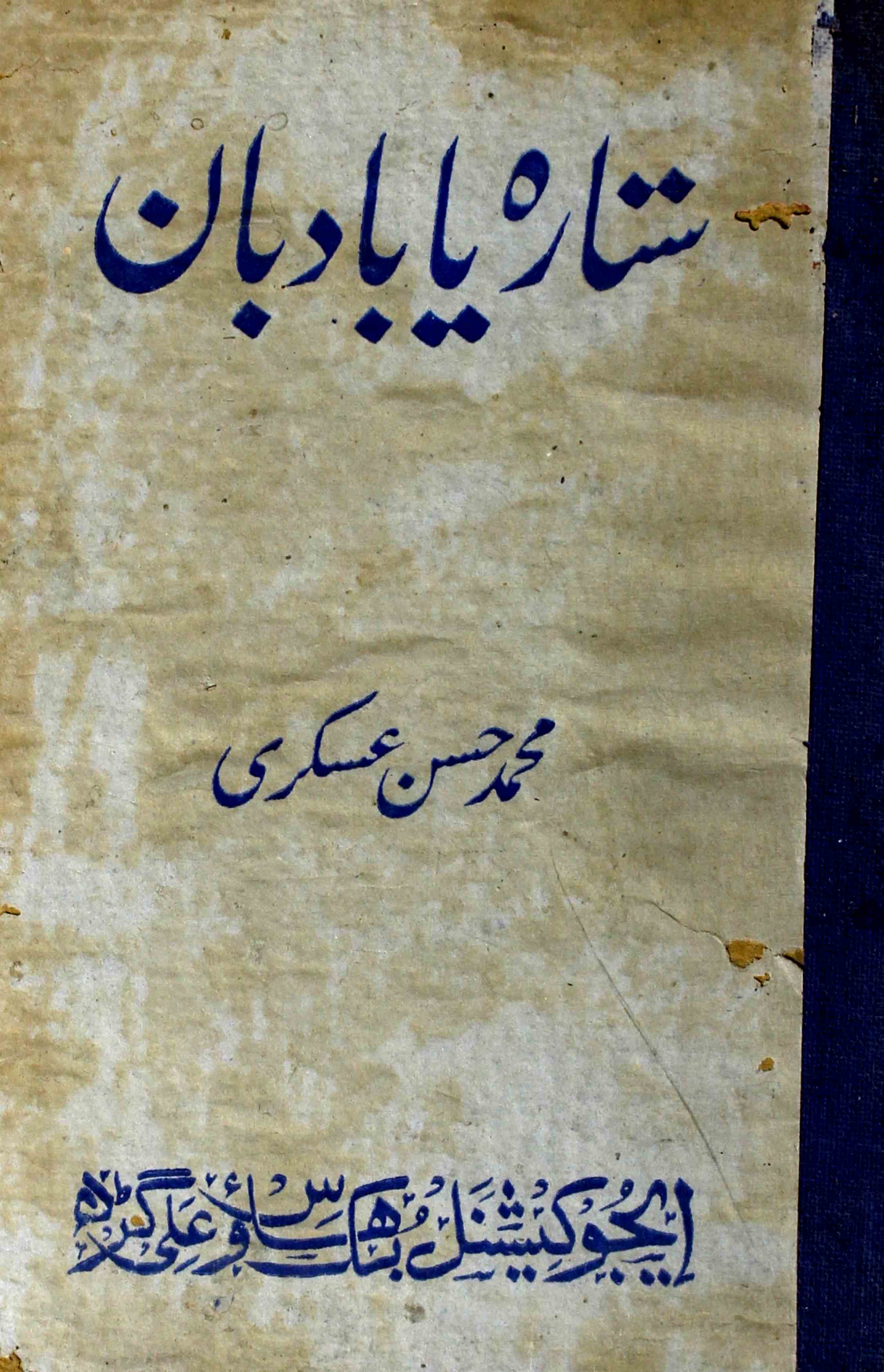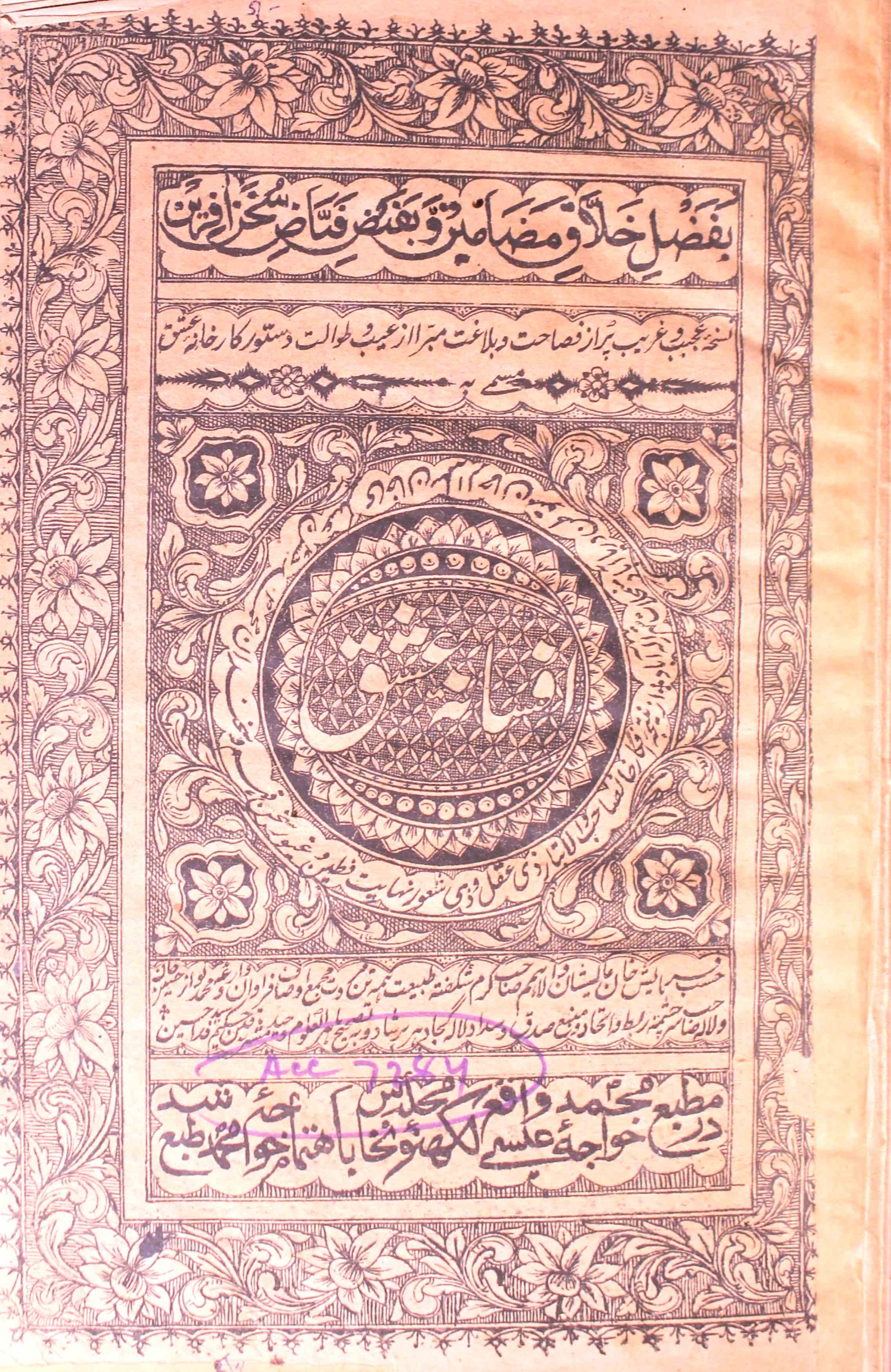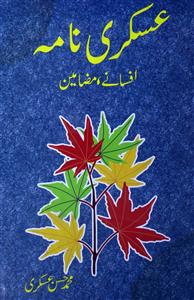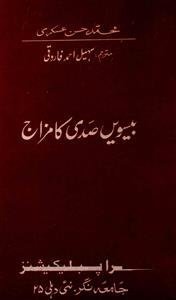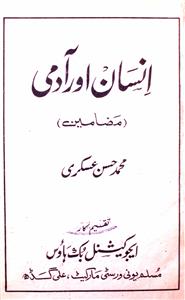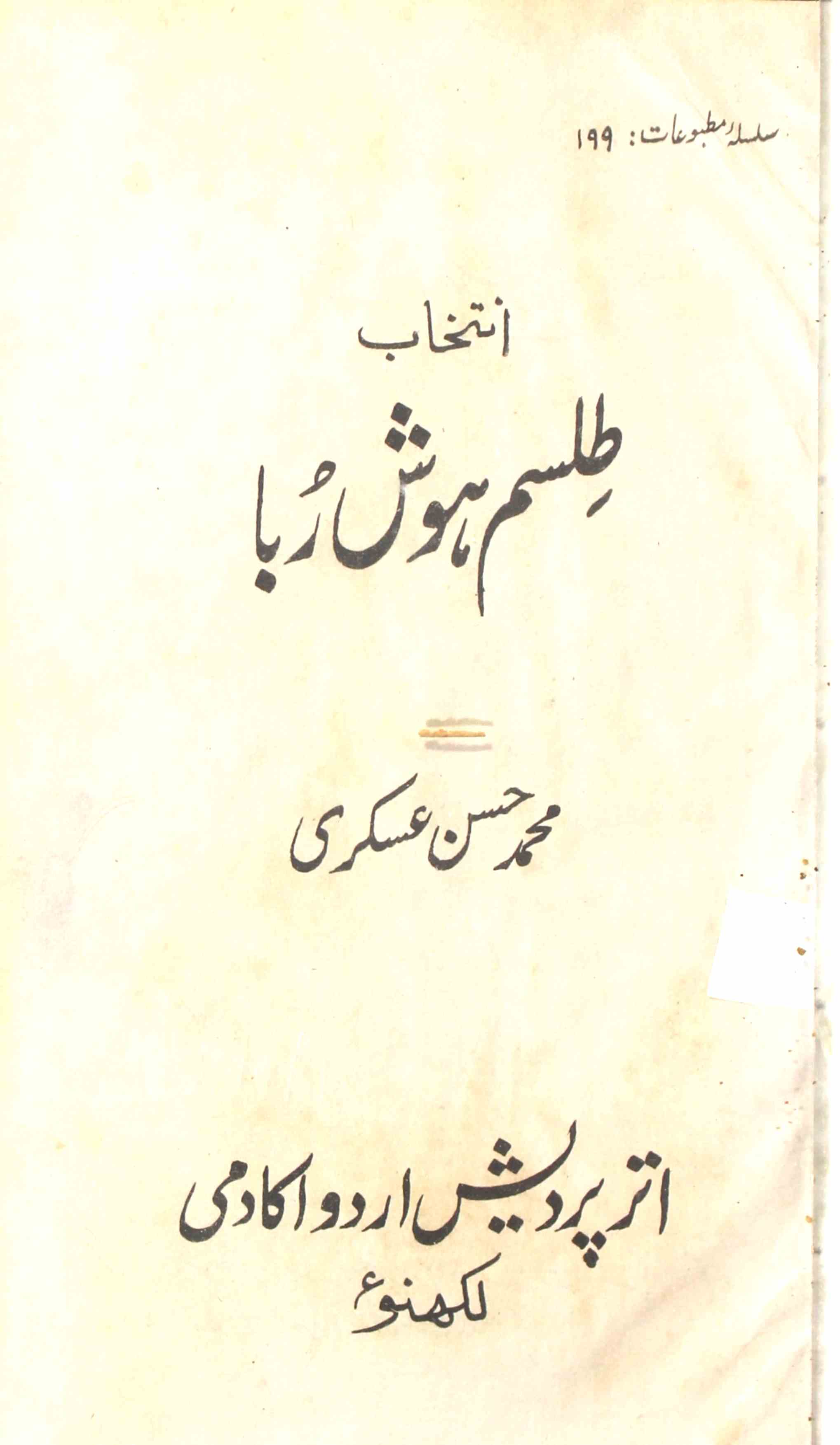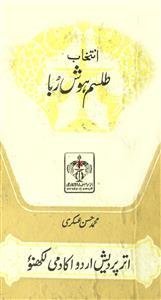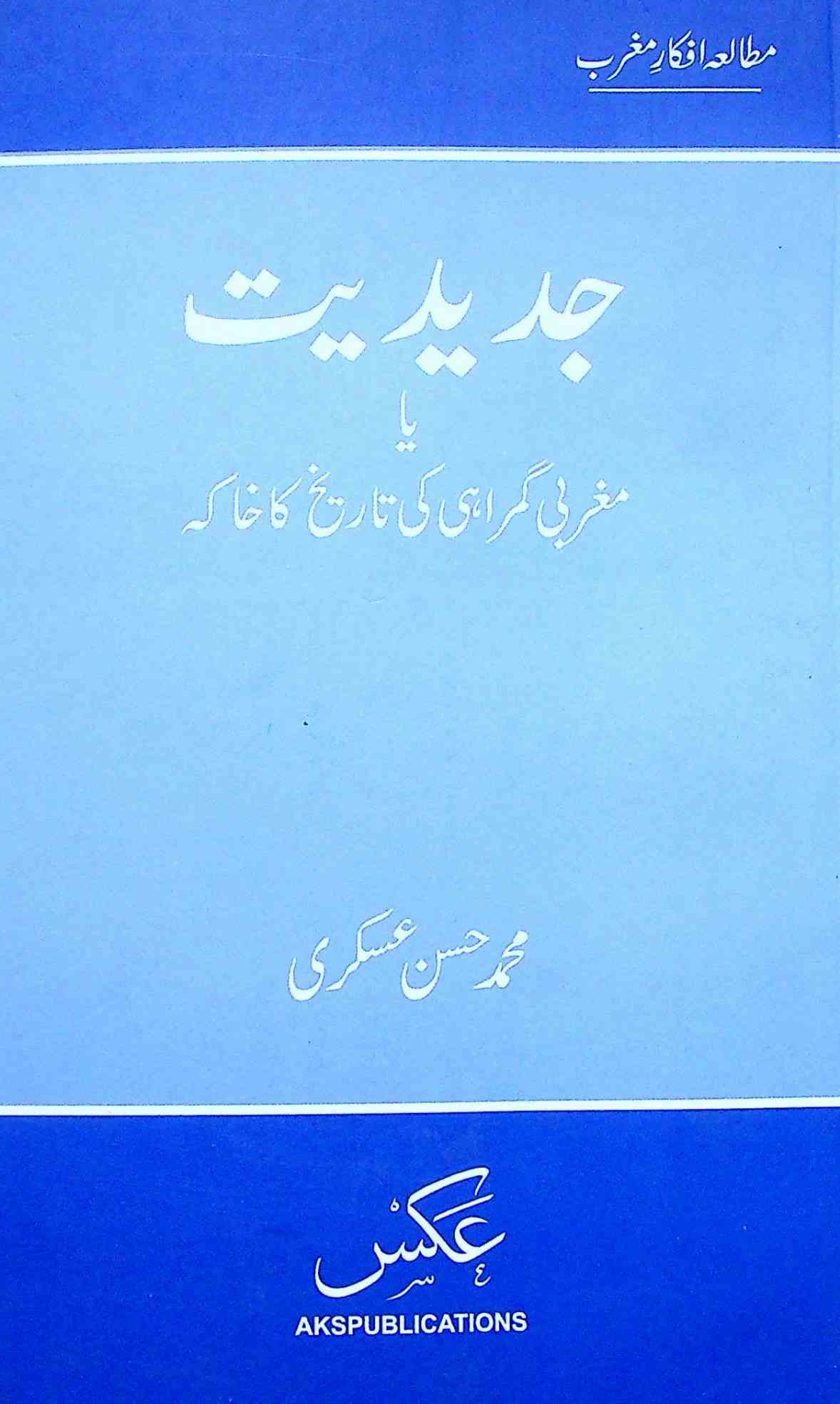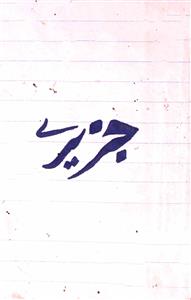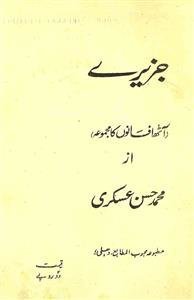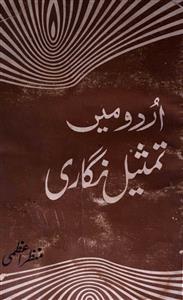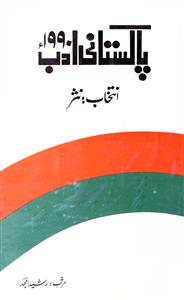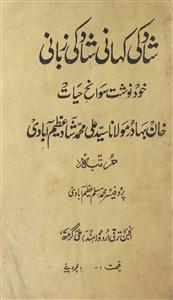 For any query/comment related to this ebook, please contact us at haidar.ali@rekhta.org
For any query/comment related to this ebook, please contact us at haidar.ali@rekhta.org
About The Author
Mohammad Hasan Askari was born on November 5 ,1919 in Meerut district. His original name was Izharul Haq. After completing his early education, he passed BA in 1940 and MA in 1942 from Allahabad University. At that time there were many eminent people in this university like Dr. Abdul Sattar Siddiqui, Dr. Tara Chand, Amarnath Jha, Aishwarya Prasad, Satish Chand Dev etc. Satish Chand Dev was very fond of Askari because of his intelligence. He started teaching at Anglo-Arabic College, Delhi. He was offered a lecture at Allahabad University which he did not accept. He started teaching in Islamia College in 1950.
Muhammad Askari began his literary journey with fiction. His first novel, "College Se Ghar Tak”, as published in 1939. This continued until 1945, but it is not known why he focused his attention on criticism after that. He had also written a column in the monthly "Saqi" in Delhi under the title "Jhalkiyan" which made him more popular in the literary circles. After emigrating in 1947, he moved to Pakistan and settled in Lahore and kept translating for Maktab Jadeed. Along with Manto, he also published a magazine called "Urdu Adab" of which only two issues could be published.
Muhammad Hassan Askari is considered one of the architects of Urdu criticism. His status as a critic is unique. He ranked among other important critics like Kaleem-ud-Din Ahmed or Al-Ahmad Suroor.
Although, the most ferocious and elongated criticism of Muhammad Hassan Askari has been made by Kaleemuddin Ahmed. A study of "Urdu Tanqiid Par Ek Nazar" suggests that Kaleem-ud-Din Ahmed in a way mocks Muhammad Hassan Askari with his criticism and also targets his ideology. He repeatedly makes it clear that Askari has tried to intimidate English and French criticisms and has made a name for himself by spreading his information among the Urdu readers. But as time went on, the significance and prestige of Muhammad Hassan Askari's writings increased. Call it Westernization, but it is true that he played a significant role in expanding the horizons of Urdu literature. Muhammad Hassan Askari has been the foundation behind the wave of modernity that started in Urdu after 1960. Although later critics, like Shams-ur-Rehman Farooqi and many others have played an important role in expanding this movement, but the honor of primacy lies with Askari.
His collection of critical essays, “Insan Aur Adami”, was published in 1953. It has fourteen articles. Some themes are technical, and others include Marxism and literature and the importance of Muslims. He has beautifully analyzed Manto's fiction on the riots and his critique of Ghulam Abbas's fiction is overwhelming. The insights he has pointed out in Firaq's poetry also reveal his astuteness. The first collection was worthy of public attention and its contents were well received. It is true that many of the views of Muhammad Hassan Askari are not acceptable today, especially in the case of Marxism. It was only after this collection that in 1963, "Sitara Ya Baadban" the second collection came out. There are many articles in it which are still being discussed today. For example, what is the duty of criticism? What is the relationship between literature and emotions? How to understand the pros and cons of admission. What is the relationship between criticism and psychology? What is the function of metaphor or what is meant by fear of it? What is the harmony between pain and artistic creation? And so on and so forth. These are the topics that led to the detailed literary discourse after the publication of the book.
The second part of "Sitara Ya Badban" itself sheds light on some aspects of Urdu literature of this period. In particular, there is a technical discussion on idioms. The book is not a reflection of the artistic or intellectual problems of literature, but those literary problems which have been given a deeper light in a new way.
When the third collection "Waqt Ki Ragni" came out, it was realized that Mohammad Hassan Askari is interested in personal literature or personal analysis, but basically, he wants to enter the realm of poetry and bring new points to the fore. Now Muhammad Hassan Askari's writings in this regard actually become the basis of the modernity movement. Some that this movement created great conditions for chaos but at the same time it became a means of getting acquainted with new literary poetry. In fact, when people start writing under the influence of a trend or movement, some creative minds are affected first, but the importance of the relevant poetry itself cannot be denied.
Muhammad Hassan Askari was a school of criticism. Very lively, very strong and very knowledgeable. In the background of his writings, Urdu criticism took many fronts and established a new world. This genius craftsman died on January 18, 1978. He is buried in Darul Uloom Kaur Gali, Karachi.
 For any query/comment related to this ebook, please contact us at haidar.ali@rekhta.org
For any query/comment related to this ebook, please contact us at haidar.ali@rekhta.org
